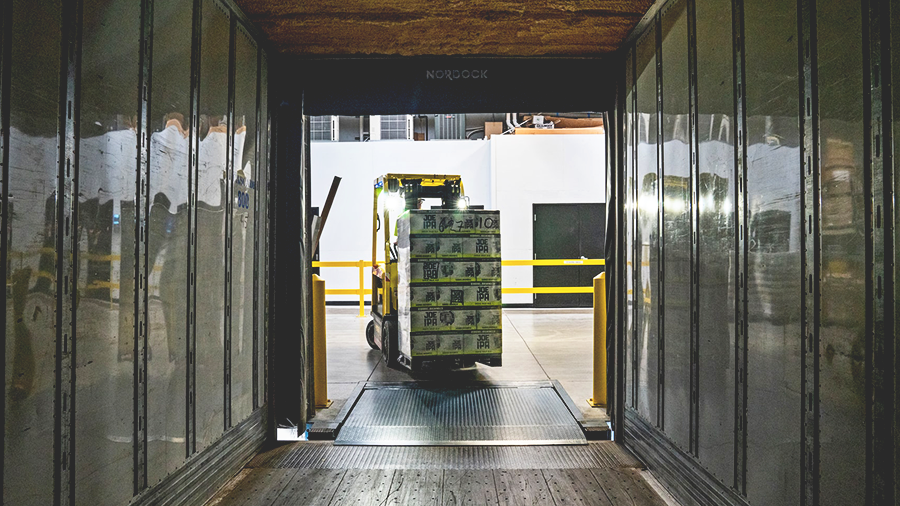|
Competition in the e-commerce space is fierce around the holidays. And the key to getting more sales during this busy season is to first figure out where your store struggles. Common obstacles we hear from our customers range from shipping logistics and advertising to proper pricing and incentives offers. The competitive advantage comes when e-commerce stores learn to overcome obstacles vital to beat out the competition and take full advantage of the benefits of online retail. Aside from common struggles, the overall outlook for online retail is bright. E-commerce is poised to clinch the retail market majority from brick-and-mortar -- even during the holiday season. So it's more important now than ever before to get your online retail house in order. Statistics from recent Deloitte studies have confirmed e-commerce's place at the 2021 holiday table. One that stood out: 60% of US shoppers surveyed expressed their preference to buy Christmas presents online. Additionally, the studies revealed that higher-income families are now more likely to not opt for brick-and-mortar during the holidays: “research shows that 59% of high-income households do their holiday shopping online, compared to around 46% of low-income families.” The rise of mobile is also working in e-commerce's favor. Mobile phone usage for online holiday shopping has increased by 11% since 2017. In this article, we'll share tips for store owners to capitalize on this expanding e-commerce space during the holiday season. In addition, we’ll address the common places we most frequently see businesses struggle. Common E-commerce Struggles for Business Owners It should come as no surprise that online retail fared much better than brick-and-mortar during 2020. But many e-commerce stores are still learning how to best position themselves for optimal post-pandemic growth. One retail executive quoted in Deloitte's 2021 Retail Industry Outlook outlined their priorities for emerging from the pandemic and finishing this year strong: "We need to catch up from behind on e-commerce, enable shopping within our app, and figure out last-mile fulfillment." they said. Their growth strategy, like that of many other execs quoted in the report, emphasizes the e-commerce arm of their business and working out the roadblocks that inhibit its streamlining. Let's tackle some of the most common struggles e-commerce business owners face, starting with the big one: shipping logistics. 1. Shipping Logistics According to Pitney Bowes, online retailers shipped over 3,200 packages per second in 2020. Among those shipments, common logistics issues cited by e-commerce stores were tracking orders, managing returns, and offering free shipping incentives. Let's break each of these items down separately: Tracking orders: Tracking is a major part of a customer's overall experience with your e-commerce store. Customers expect to find clear information on where their products are at and when they will arrive with relative ease. Apps or plugins that link your store with your shipping carrier's tracker or send automated status updates by text are great options for this. These simple tools will help ensure your customer has a positive experience not only while shopping with you, but while awaiting their purchase. Managing returns: Consumers expect retailers to have generous return policies, and while good for the consumer, that can become a problem for store owners. According to the National Retail Federation, online returns more than doubled in 2020, particularly during the holiday season, which saw return rates of 13.3% of all merchandise sold. This amounted to $400 billion lost in retail sales. Returns can either be preference-based, for example, a dress not fitting properly, or non-preference-based, e.g. broken or damaged goods. Understanding why your customers return items is important for reducing future returns. That being said, a generous return policy remains critical to the health of your e-commerce business. How is this the case? Research shows that liberal return policies can lead to long-term customers: 95% of shoppers who are happy with a store's return process say they'll continue making purchases from that store; whereas shoppers who are unhappy with a store's return process are 3x’s more likely to never do business with that retailer again. Thomas S. Robertson, a marketing professor at UPenn’s Wharton School of Business, stated, it remains true that "handling returns well builds loyalty at the consumer level." Free shipping: Many shoppers have come to expect free shipping as a benefit of shopping online. And though this offer can come at a cost to you, there are many ways it can benefit your business in the long run and help bring back customers in the future. According to PracticalEcommerce.com, offering free shipping will invariably increase your average order size. In the long run, the costs you absorb in shipping will often be counterbalanced by the sale of more products. Especially, if free shipping offers are contingent upon a minimum purchase threshold, for example, “Free shipping on qualifying orders of $50 or more.” One way to keep your costs manageable, if you decide to make free shipping a benefit of shopping online with your store, is to reduce your product packaging. This will help keep your shipping fees to a minimum. Not only is it better for your bottom line, it is also better for the environment. The best part is you can even promote free shipping on your Google Ads. This helps shoppers save time and money while shopping online this holiday season. 2. Advertising & Marketing Getting your products seen by the right shoppers at the right time is key to beating your competitors this holiday season. Make sure your products stand out from the crowd by listing your product on Google Shopping and running a paid Google Smart Shopping campaign. Kliken makes listing your products on Google Shopping and launching your Google Smart Shopping campaign fast and easy. All you have to do is sign up with your e-commerce platform, follow our simple guided steps, and select the budget that works for you to get your products in front of customers shopping online. We maintain your product feeds keeping your products listed on Google Shopping, visible to your customers as they browse and your Smart Shopping campaign running smoothly. We update your product feeds and we keep in sync every day making sure your product listing and ads are following Google's best practices. Google Ads powered by Kliken is a simple marketing strategy to make the most of your advertising efforts this holiday season. 3. Incentives Incentives are a great way to help distinguish your e-commerce store from the competition. Incentives can give shoppers a sense that there's an increased value if they make a purchase now. Here are some incentives you can implement for your shoppers this holiday season. Free shipping: The top incentive you can implement is one we have already mentioned, free shipping. Online shoppers love free shipping. A 2019 study detailed in Forbes Magazine, 84% of shoppers surveyed credited free shipping as the primary incentive for making a purchase at some point; a whopping 77% have abandoned carts because of unsatisfactory shipping options. Free gift with purchase: Shoppers also respond well to a free gift with purchase incentives. It can add value to your brand in a way that traditional discounts cannot. Donating to a worthy cause: Giving back or donating a percentage of sales to a worthy cause is a great incentive that shoppers respond well to around the holidays. Shoppers are incentivized to act on behalf for the perceived good that their purchase will contribute to. A 2018 study concluded that Millennials and Gen Z-ers rank animal welfare, bullying, and environmental issues high among the issues they're most passionate about. Or if you want to go with something more holiday-centric, Red Cross's Holidays for Heroes campaign is a great choice. You can't go wrong introducing any of the tips we have suggested to implement for your e-commerce store this holiday season. Not only will your business reap the benefits, but so will your customers. To briefly recap, here they are again:
Author: Michael ArnoldMichael is a freelancer from New York City. When he isn’t writing about how Kliken unleashes the marketing, you can find him reading, writing for pleasure, or traveling the globe.
0 Comments
Your comment will be posted after it is approved.
Leave a Reply. |












